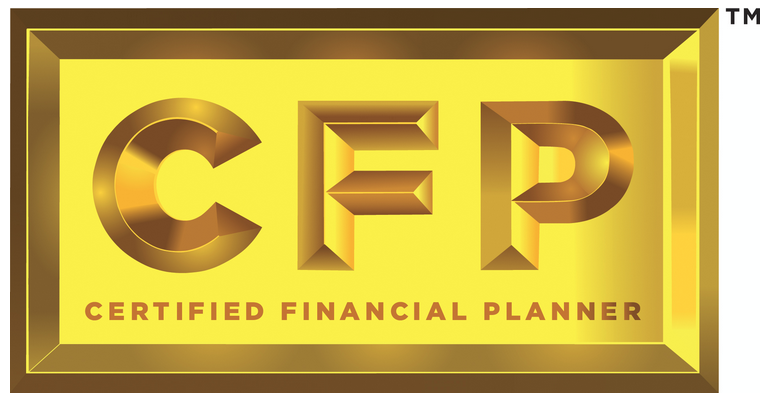6 Certified Financial Planner Requirements
Like every profession, becoming a Certified Financial Planner requires you to achieve certain requirements in order for you to become an official ” certified financial planner”.
Like any other career path, knowing what those requirements are can help you decide whether becoming a Certified Financial Planner (CFP) is what you want.



Image Courtesy of the CFP Board
What’s required?
Certified Financial Planners help people (and groups and organizations too!) with a whole array of financial services.
These range from Retirement planning and Tax planning, to Investment, Insurance and Retirement planning.
As required by the CFP Board, here are 6 Certified Financial Planner requirements that anyone considering becoming one needs to be aware of:
1) Personal predisposition: At the very top of the Certified Financial Planner requirements list would have to be ones personal predisposition towards the profession. Anyone can likely become a CFP, but only someone who truly loves working with people, has an aptitude for numbers, and isn’t afraid of hard work, can become a GREAT financial planner!
Having excellent interpersonal skills, the ability to listen to clients, and (optionally) great selling and persuasion skills, are also some other related requirements. These skills will help CFPs “sell” themselves, their ideas, products and services to clients.
2) Education level: One of the ideal Certified Financial Planner requirements is to have at least a Bachelors degree under your belt. That’s the ideal. But not everyone aspiring to become a CFP may have a Bachelors degree. In such cases, it may be possible to obtain educational standing through optional diploma or certificate programs offered by community colleges or other similar institutions.
In some States, there may be other educational achievements that are recognized as equivalent to Bachelor’s degrees. If you don’t have a Bachelor’s degree, you should investigate alternate options to meeting the minimum educational requirements to pursue a CFP career.
3) Related Field of education:
Ideally, the Bachelors degree (or equivalent) you pursue should provide you the basic knowledge needed to pursue a career in financial services. This will ensure that, as you make your journey towards achieving your professional certification, you will hit fewer speed bumps.
Preferably therefore, you would have such a degree in Finance, Accounting, Business Studies, Economics, or other related field of commerce. Trying to meet some of the other Certified Financial Planner requirements without being grounded in related education may not be impossible, but it will certainly be much more challenging than if you already had the basic building blocks.
All-in-One Change Management Tools
Top Rated Toolkit for Change Managers.
Get Your Change Management Tool Today...
4) Internship/Apprenticeship:
Undergoing an internship or apprenticeship is yet another one of the mandatory Certified Financial Planner requirements. Having successfully completed an apprenticeship puts individuals in an ideal position to quickly and more easily meet the next requirement – Licensing/Certification. Working in a small (or maybe a major corporate entity) financial planning operation will give individuals a taste of things to come once they immerse themselves in their profession of choice.



Image Source: Certified Financial Planner Requirements
5) Licensing/Certification:
This is one of the mandatory Certified Financial Planner requirements. Every State mandates that, in order to practice the profession, individuals must be certified with the CFP designation. Certification is granted by the CFP Board, to individuals who have demonstrated their certification requirements – also known as the “4Es”: Education, Examination, Experience and Ethics.
The CFP Board requires that individuals who successfully pass their exam should have either 3 years of experience of the financial planning process, or 2 years of apprenticeship or other related (but relevant) experience.
6) Continuing Education:
On the list of ongoing Certified Financial Planner requirements is continuing education. In order to maintain the CFP designation, the CFP Board requires that Certified Financial Planners demonstrate that they have met the minimum criteria for continuing education in the relevant field. This requirement can be met by attending relevant Seminars, Workshops, Courses or completing other Board-approved professional development activity.
Planning ahead
The best way to meet all of these Certified Financial Planner requirements is to plan ahead whether financial planning is something you want to make a career of. In some rare cases, students as early as during high school often have a clear idea of the choice of their profession.
But for most, deciding that early may not be ideal.
So ideally, how early should you start planning for a CFP career?
Well, by the time you start thinking of degree-level studies, you should have clarity in your mind about a career path.
For instance, if you start pursuing a degree in Mechanical Engineering, you may not be in an ideal position to meet all of the Certified Financial Planner requirements.
But while you might not be “ideally” positioned to make financial planning a career with a Mechanical Engineering degree, there’s no reason why (with a little extra work) you can’t succeed.
AdvisoryHQ (AHQ) Disclaimer:
Reasonable efforts have been made by AdvisoryHQ to present accurate information, however all info is presented without warranty. Review AdvisoryHQ’s Terms for details. Also review each firm’s site for the most updated data, rates and info.
Note: Firms and products, including the one(s) reviewed above, may be AdvisoryHQ's affiliates. Click to view AdvisoryHQ's advertiser disclosures.





